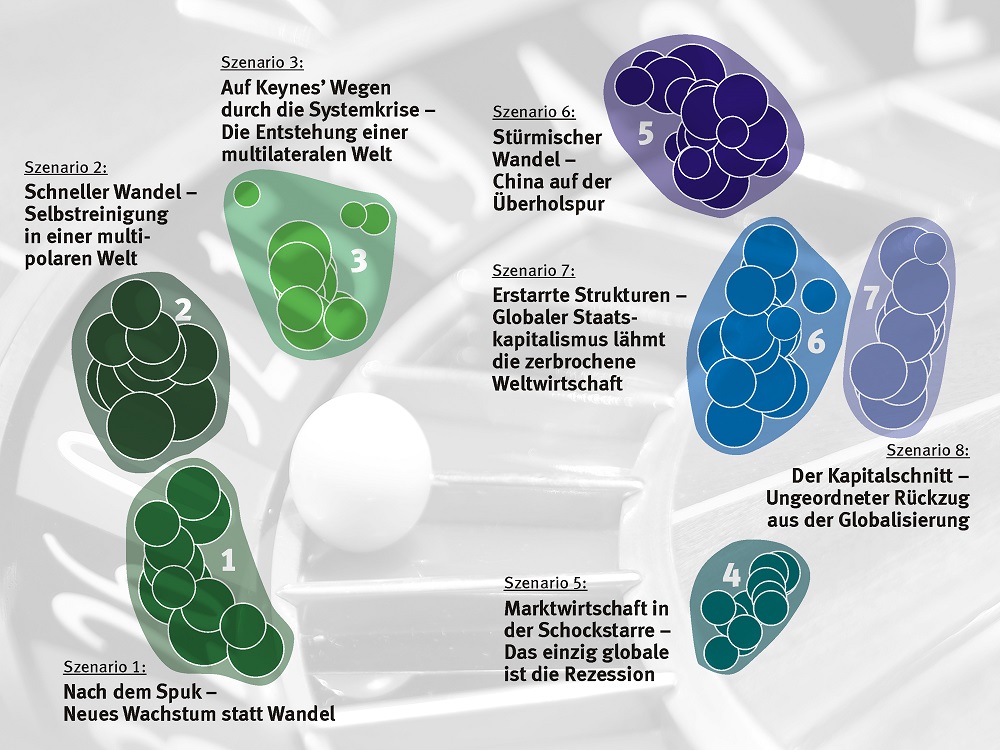Scenarios for financial and economic crisis: Tools for navigating through the crisis

The outbursts of the global financial and economic crisis lead to a profound uncertainty in the economy, the society and in politics.
Many companies, organizations and governments realize that they cannot exactly predict the future. At the same time the necessity evolves to plan the consequences of possible developments. Developing future scenarios might be one of the instruments to solve these problems. In contrast to predictions, scenarios do not only project an expected future, but more possible futures, explains Alexander Fink, chairman of Scenario Management International AG (ScMI), located in Paderborn.
In order to reveal possible progressions of the financial and economic crisis, different economic and future research institutes developed scenarios during the last months. The ScMI AG analyzed and linked these scenarios to another.
The results are seven overlapping scenarios which reflect the current state of knowledge. The array of the shown possibilities is broad – from new growth without a significant change of global trading structures (Scenario 1) to a global-economic ‘Tsunami’, bringing the danger of global capital cuts (Scenario 7). Furthermore, Scenario 2 describes a fast transition to a stronger multilateral economic order, while scenario 3 battles a longer crisis before developing positively. Talking about the rather pessimistic future images, the array starts with a market economy remaining in a state of shock (Scenario 4), to a fast shift of global economic powers in direction of Asia (Scenario 5) and finally to a long lasting recession with strong elements from state capitalism (Scenario 6).
According to Alexander Fink (ScMI), one of the main advantages of scenarios is that, besides the extreme cases, relevant intermediate scenarios and key sizes were developed as well. ’Having a closer look at the results, it is obvious that there are different views from different institutions on the crisis’, adds chairman Andreas Siebe. While purely economic institutes concentrate on the crisis progression, trend and future researcher focus on the question what the world could look like after the crisis. “Each and every of the analyzed scenarios has its permission”, emphasizes Siebe, ‘our job is to combine the different perspectives and to give an overview’. The ScMI AG draws a ‘map of the future’, which shows crisis progressions as well as different possibilities for the after-crisis-time.







